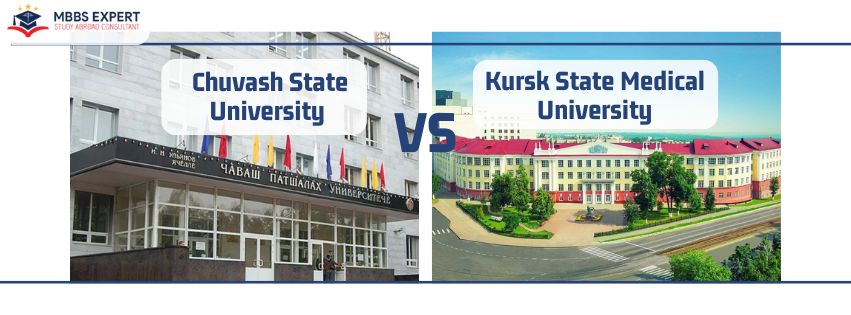Study MBBS at Ingush State University, Russia – Your Gateway to an Affordable Medical Education…
Clinical Training at Ingush State Medical University: What to Expect
![]()
Table of Contents
ToggleClinical Training at Ingush State Medical University: What to Expect
Clinical training is a cornerstone of medical education, bridging the gap between theoretical knowledge and practical application in real healthcare settings. At Ingush State Medical University (ISMU), this training is meticulously designed to prepare students for the rigors and demands of medical practice. In this comprehensive guide, we delve into what prospective and current students can expect from the clinical training program at ISMU.
Introduction to Clinical Training
Clinical training at ISMU represents a pivotal phase in the journey of medical students towards becoming competent healthcare professionals. It encompasses a structured curriculum that integrates classroom learning with hands-on experience in hospitals, clinics, and other medical facilities. This immersive approach not only reinforces theoretical concepts but also cultivates essential skills such as clinical reasoning, patient management, and interpersonal communication.
1. Integration of Theoretical Knowledge
The foundation of clinical training at ISMU lies in its integration of theoretical knowledge acquired during the pre-clinical years. Students transition from classroom-based learning in disciplines such as anatomy, physiology, pathology, pharmacology, and microbiology to applying these concepts in real-world patient care scenarios. This integration fosters a deeper understanding of medical principles and their practical implications in diagnosing and treating patients.
2. Rotations in Different Specialties
One of the defining features of clinical training at ISMU is the opportunity for students to rotate through various medical specialties. These rotations expose students to diverse fields of medicine, broadening their clinical experience and perspective. Key rotations include:
- Internal Medicine: Focuses on the diagnosis and management of diseases affecting internal organs, providing insights into chronic conditions and complex patient cases.
- Surgery: Involves assisting in surgical procedures under the guidance of experienced surgeons, emphasizing perioperative care and surgical techniques.
- Pediatrics: Centers on the healthcare needs of infants, children, and adolescents, encompassing preventive care, growth monitoring, and management of pediatric illnesses.
- Obstetrics and Gynecology: Covers prenatal care, childbirth, and women’s reproductive health, preparing students for obstetric emergencies and routine gynecological procedures.
- Emergency Medicine: Provides training in handling acute medical conditions and trauma cases, emphasizing rapid assessment, stabilization, and emergency care protocols.
These rotations not only enhance clinical skills but also allow students to explore different career paths within medicine, aligning their interests and aptitudes with specialized fields.
3. Supervised Clinical Practice
Under the mentorship of skilled faculty and healthcare professionals, ISMU students engage in supervised clinical practice. This hands-on experience is instrumental in developing competencies such as physical examination techniques, patient interaction skills, and clinical decision-making. Students actively participate in patient care, from conducting initial assessments to formulating treatment plans and monitoring patient progress. This exposure instills confidence and prepares students for independent practice in diverse healthcare settings.
4. Exposure to Diverse Patient Populations
ISMU prides itself on offering clinical training that reflects the rich diversity of patient populations. Students encounter patients from varying socio-economic backgrounds, cultural beliefs, and health conditions. This exposure promotes cultural competence, sensitivity to healthcare disparities, and adaptability in delivering patient-centered care. By interacting with a broad spectrum of patients, students learn to navigate complex medical scenarios while prioritizing patient welfare and ethical considerations.
5. Emphasis on Ethical and Professional Standards
Ethical conduct and professionalism are core values embedded throughout ISMU’s clinical training program. Students are guided in upholding ethical principles such as patient confidentiality, informed consent, and respect for patient autonomy. They learn to collaborate effectively with interdisciplinary healthcare teams, fostering mutual respect and teamwork in delivering holistic patient care. This emphasis on ethical standards cultivates integrity and accountability, essential traits for ethical medical practice.
6. Assessment and Feedback Mechanisms
Continuous assessment is integral to monitoring students’ progress and competence during clinical training at ISMU. Evaluation methods include written examinations, oral presentations, clinical skills assessments, and feedback from supervising clinicians. These assessments measure students’ clinical knowledge, procedural proficiency, and professionalism. Feedback sessions provide constructive guidance for improvement, enabling students to refine their skills and address areas of development. This iterative process supports lifelong learning and professional growth in healthcare practice.
7. Research Opportunities and Evidence-Based Medicine
ISMU encourages students to engage in clinical research projects as part of their training. Participation in research enhances students’ understanding of evidence-based medicine, scientific inquiry, and the integration of research findings into clinical practice. Through research endeavors, students contribute to advancing medical knowledge, exploring innovative treatments, and addressing healthcare challenges. This exposure prepares them for roles in academia, research institutions, and healthcare leadership, where critical thinking and research literacy are paramount.
8. Preparation for Licensure and Certification
Clinical training at ISMU is designed to align with licensure requirements and certification examinations necessary for medical practice. Whether pursuing licensure in Russia or planning to practice internationally, students receive guidance and support in preparing for licensing exams such as the USMLE (United States Medical Licensing Examination) and PLAB (Professional and Linguistic Assessments Board). ISMU’s comprehensive curriculum and structured clinical training equip students with the knowledge, clinical skills, and professional competencies needed to excel in licensure examinations and embark on successful medical careers worldwide.
Conclusion: Equipping Future Healthcare Leaders
In conclusion, clinical training at Ingush State Medical University equips students with the practical skills, theoretical knowledge, and ethical foundation essential for thriving in the dynamic field of medicine. Through immersive clinical experiences, mentorship from accomplished faculty, and exposure to diverse patient populations, ISMU prepares students to meet the challenges of healthcare practice with confidence and competence. Graduates emerge as compassionate healthcare professionals, ready to make meaningful contributions to patient care, medical research, and healthcare leadership globally.
For more specific details about clinical training at Ingush State Medical University, visit their official website or contact their admissions office. Discover how ISMU’s comprehensive clinical training program can shape your journey towards a fulfilling and impactful career in medicine.





